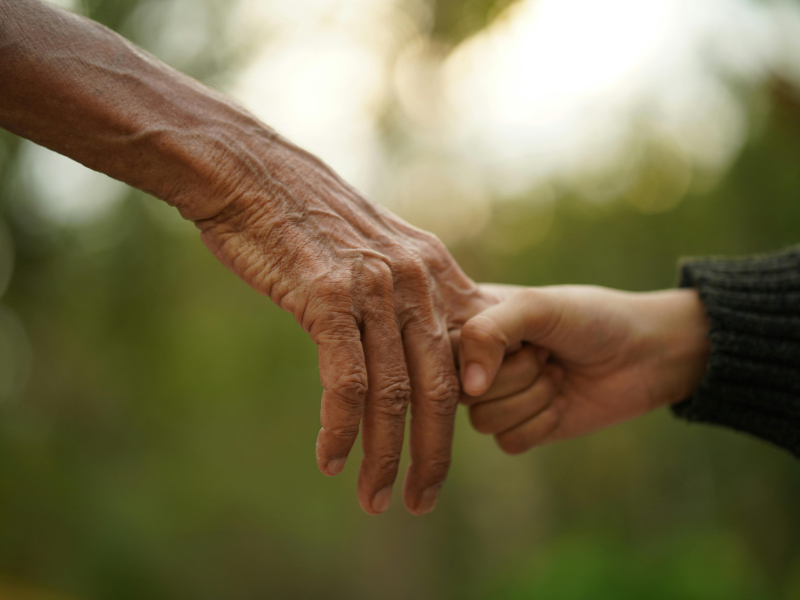
As South Asians, we believed we were bringing luggage packed with masalas, jhumkas, and reminders of the comfort of home when we immigrated to America in hopes of a better life. We didn’t realize we had also unintentionally brought years of emotional baggage with us on this journey. Tucked into the corners of our suitcases were generations of silenced feelings, cultural expectations, and migrant struggles.
Mental health is a crucial aspect of a healthy lifestyle. Despite this, however, many South Asians keep their mental health struggles locked behind closed doors, avoiding acknowledging them at all. While the amount of discussion surrounding mental health is constantly growing, internalized shame, systemic barriers, and societal norms tend to get in the way of concrete change. For South Asian migrants, these challenges are riddled with the complexities of navigating identity, acculturation, and intergenerational conflicts.
How Do We Begin to Unpack This?
The South Asian community tends to be quick to dismiss mental health concerns as personal weaknesses rather than legitimate issues. “What do you have to be upset about?” and “What will other people say?” are common responses to feelings of sadness or distress within the South Asian community. These responses tend to be more harmful than helpful. These statements reflect a deeper cultural belief ingrained into the South Asian community, better known as, stigma. Stigma is characterized by having negative attitudes towards those with mental health issues.1
South Asian culture is conservative in nature, which is why the discussion of mental health is so taboo.2 The idea of putting the group first before oneself is known as collectivism, a concept central to South Asians, and why societal opinions are so important within this population.3 In our culture, community isn’t just a support system, it's the foundation of who we are. Collectivism emphasizes harmony, cooperation, and closeness.1 However, at times, it brings with it traditional gender norms, patriarchy, and the suppression of women and/or young family members, which can, paradoxically, lead to significant distress.1 The pressure to keep family dynamics balanced can often prevent us from seeking out help. Among South Asians, mental health issues are often viewed as poor reflections on the family, causing individuals to keep their struggles to themselves. The cultural pressure to keep emotions suppressed can worsen distress and limit access to care.1
With immigration comes acculturation, or the merging of two cultures’ beliefs, values, behaviors, and ideologies.4 However, South Asian and American perspectives are drastically different, which can lead to internal conflicts. Contradicting views can cause feelings of cognitive dissonance which is discomfort in one’s own thoughts. Despite the clear impact of living in a country foreign from your roots, research investigating the impact of acculturation on South Asian mental health is lacking.2
Rerouting Psychology
Mental health issues can often manifest uniquely in South Asians, likely due to differences in cultural values, stigma, and stressors. Our emotional distress often presents as physical symptoms, like unexplained headaches, stomach issues, or fatigue.5 Sometimes mental health issues can go undiagnosed or have delayed diagnoses due to healthcare professionals focusing solely on physical symptoms.5 The intersection between culture and mental health care highlights the importance of finding mental healthcare providers who truly understand the unique presentations of mental health issues.
Finding a therapist who understands the weight of balancing a bicultural identity and cultural expectations can feel impossible. This can be explained by the fact that psychology at its core is rooted in research primarily conducted in Western, Educated, Industrialized, Rich, and Democratic (WEIRD) populations. The foundational theories, diagnostic criteria, and treatment plans that we use today may not be applicable to marginalized groups, making mental health care feel inaccessible to many. Ultimately, this creates feelings of cultural disconnect. How can we seek help in a system that wasn’t designed with us in mind?
The journey to transforming mental health care to be inclusive of our community isn’t a quick fix. Rather, it is a path that begins with research at the forefront. To integrate cultural competency into evidence-based practices, we must first understand what we need. This begins with listening to the community. This gap in research is what inspired me to take a deeper look into our community’s nuanced mental health experiences. We need studies that uplift South Asian voices and understand our cultural complexities, so we can ultimately create evidence-based treatment plans specifically catered to us.
South Asian American Immigrant Mental Health Study
The need to understand the mental health experiences within the South Asian community led to the development of the South Asian American Immigrant Mental Health Study. This study aims to explore the experiences of South Asian Americans in acclimating to life in the U.S., evaluate their perspectives on mental health, and assess their overall mental well-being.
Who can participate? Consider joining this study if you:
● Moved to the U.S. before age 12 (1.5 gen) OR were born in the U.S. to immigrant parents (2nd gen)
● Have roots in India, Pakistan, Bangladesh, Nepal, Sri Lanka, Bhutan, Afghanistan, or the Maldives
● Are 18+ and living in the U.S.
Participation in this study will contribute to gathering data that supports the needs of the community and can ultimately lead to the development of evidence-based mental health practices. For more information, visit here.
Taking steps to break the stigma surrounding mental health in our community begins with us. It's important to start conversations at home, advocate for therapists who support minority mental health, and prioritize research that validates our experiences.
Let’s unpack the suitcase together.
About the author:
Nishka is a researcher and mental health advocate focusing on the intersection between multicultural psychology and health equity among marginalized populations. With a Bachelor’s in Biomedical Sciences and as a current Clinical Psychology MA candidate, she integrates biological and psychological perspectives into her research. Her master’s thesis focuses on anxiety in the South Asian immigrant population and is part of a large-scale study developing a comprehensive health and wellness curriculum. Connect with her on LinkedIn.
References:
1. Karasz A, Gany F, Escobar J, et al. Mental Health and Stress among South Asians. J Immigr Minor Health. 2019;21(Suppl 1):7-14. doi:10.1007/s10903-016-0501-4
2. Tan GTH, Shahwan S, Goh CMJ, et al. Mental illness stigma’s reasons and determinants (MISReaD) among Singapore’s lay public – a qualitative inquiry. BMC Psychiatry. 2020; 20:422. doi:10.1186/s12888-020-02823-6
3. Triandis HC. Individualism & Collectivism. Westview Press; 1995: xv, 259.
4. Siddiqui SM. Acculturative stress, everyday racism, and mental health among a community sample of South Asians in Texas. Front Public Health. 2022; 10:954105. doi:10.3389/fpubh.2022.954105
5. American Psychiatric Association. Diagnostic and Statistical Manual of Mental Disorders. Fifth Edition. American Psychiatric Association; 2013. doi:10.1176/appi.books.9780890425596











